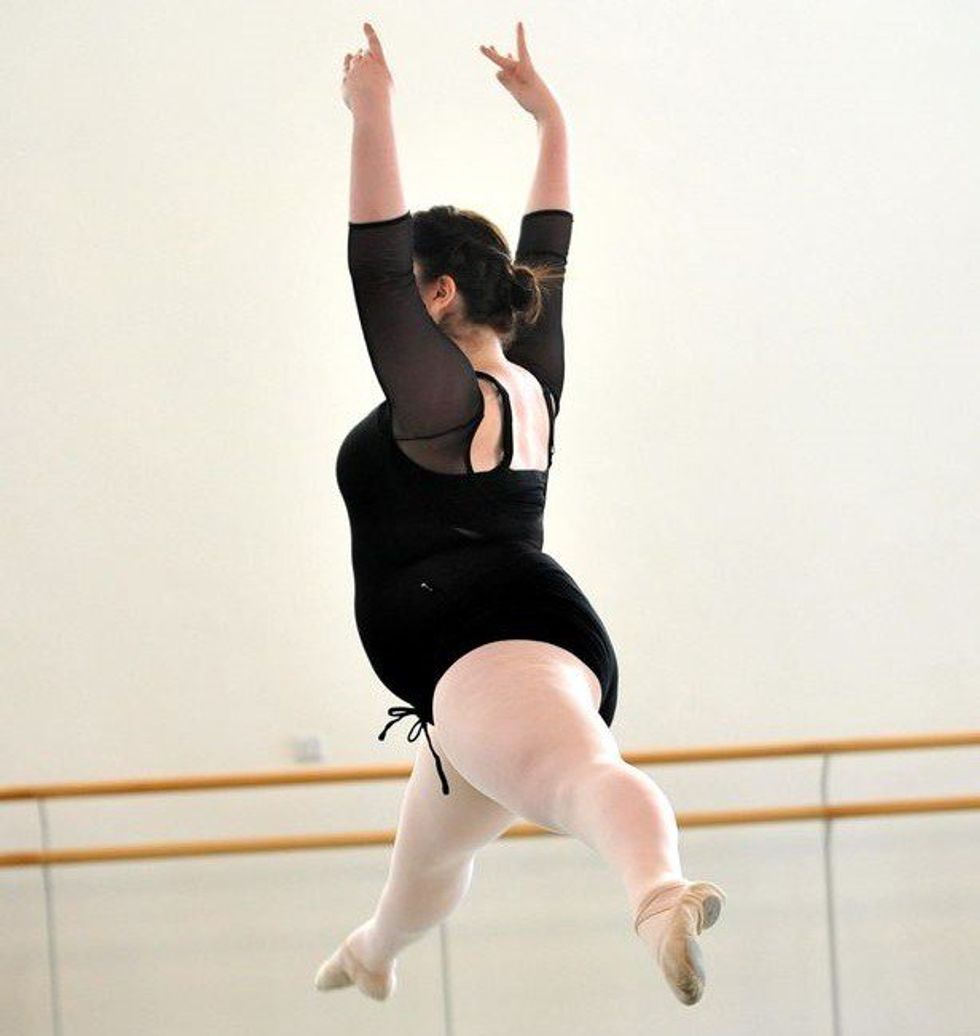The commencement of dance classes in the midst of the pleasant haze of late summer always brings to me the conflicting senses of high anticipation and dread. As I browse online for a new leotard, scrolling down to "large" in the size-selection box, I find my thought patterns beginning to fall into that conditioned state with which we all approach expected interactions:
"It surprises me how easily you get up en pointe, with your weight."
"Why don't you order this costume in plus-size?"
"I'm sorry. I don't think I'm strong enough to lift you."
To add more to this already uncomfortably long list, let me remind you of that one conversation with your instructor that never gets old: "Have you ever thought about making some changes to your diet? It will make dance so much easier for you."
Comments like these -- we don't pay them much mind, do we? We don't think twice at auditions, when our barre placement lurks on the outer edges of the judges' peripheral vision. How many times have we walked into class, arms crossed over our torsos, slumped and flat-footed in an attempt to hide our leotard-clad bodies? How many times have we felt that we had to train harder, dance more passionately, jump higher, and turn faster than our peers just to be given the time of day by our instructors? Whether we've been cast aside in consideration for a role in the company production, or received a scholarship for our talents despite sharp and immediate criticisms about our weight, we chubby ballerinas have all felt the bitter bite of unwanted attention -- or lack thereof -- from those who believe that a lower BMI is going to make a significant impact on not only our physical ability to dance, but on our skill and artistry as well.
So, where do we draw the line? At some subconscious level of thought, are we focusing more on the number on our scales than our actual abilities?
Please, my fellow chubby ballerinas, take this as a personal warning: don't project the attitudes of others onto your own thoughts about yourself. Giving that kind of importance to a system of thought that you have shown to yourself to be unnecessary and ridiculous, rooted in the traditions of selectivity and bias, just places another limit onto your potential as a dancer. Anger can only spur you so far; once your indignation towards your shortsighted counterparts wears off... what's left of that immeasurable talent? What is going to make you get back on your feet (pun intended) after a bad rehearsal, a crippling injury or an unintended emotional slight? If you focus your energy on the same superficial and (let's face reality, folks) relatively unimportant aspects of your physical ability that others do, your performance becomes fueled by a negative desire to break the stereotype. In every warm-up routine, every class, you stretch a bit further, get your developé a little bit higher, all in the deceptive hope that, maybe this time, you can prove them wrong.
Save it. Don't bottle it up and put it away, bottle it up and throw it away. As far away from yourself as possible.
The real way to break the stigma? Keep on dancing. Don't waste yourself on fad diets, starvation or futile bitterness. You are the only one who truly knows your limits - everyone else can only pretend to. And guess what else? You are the only one who can push them. So get into your tights and toe shoes, and walk into that next class with your chin up, back straight, shoulders down and arms long (this incidental dance instructor language is completely incidental), because nobody in that studio can surpass the strength and dedication of you, a chubby ballerina.





















